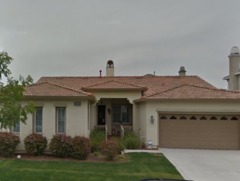
Geriatric care :
- Different types of long-haul private consideration are accessible for old individuals. An individual or couple who can deal with their everyday needs might decide to reside in a retirement high rise (“free residing”) where they work independently. They might decide to fix their own suppers or have dinners given, or a blend of both.
- Numerous private offices are intended for old individuals who needn’t bother with 24-hour nursing care yet can’t live freely for More Information. Such offices might be portrayed as helped residing offices, board and care homes, or rest homes. They ordinarily give an outfitted or empty room, along with all dinners and housekeeping and clothing administration.
- Contingent upon the requirements of the inhabitant they likewise furnish help with everyday exercises like individual cleanliness, dressing, eating, and strolling. They are not viewed as clinical offices, yet they do need to fulfill state guidelines for care and security.
Nursing homes :

It is otherwise called rest homes or gifted nursing offices, which are expected for individuals who need continuous clinical consideration just as help with everyday exercises. Nursing home populaces have been diminishing in the United States, notwithstanding the increment in the old populace, on account of the expanding accessibility of different choices like helped residing.
Proceeding with care retirement networks give a few sorts of care – ordinarily, autonomous living helped living, and gifted nursing – in one area, with the occupant having the option to move to start with one level then onto the next as their necessities direct. This is regularly alluded to as ‘Maturing in Place’.
Hospice care :
Hospices give a type of clinical consideration for individuals with terminal sickness or condition, for instance, disease. It is for the most part utilized when an individual is extremely near death. Most hospices offer a decision of private (nursing home) or in-home (strong) care. A hospice accentuates a palliative rather than a corrective methodology; the patient is made open to, including relief from discomfort depending on the situation, and both patient and family are given passionate, otherworldly, and commonsense help.
Psychiatric hospital care :
Individuals might be confined under the laws that express that they must be separated in specific conditions. In the United Kingdom, no less than 2 specialists can sign a paper to get this to occur. Patients must be a danger to themselves, property, or others to warrant being separated; this can incorporate self-destruction endeavors.
A few patients might elect to go to a mental emergency clinic since they perceive that they are sick. Treatment can happen against the patient’s desires in case this is required and that can be with the utilization of medications. The patients are for the most part confined until specialists accept that they are adequately steady to leave.
Rehabilitation unit care :
Individuals who are dependent on medications or liquor might be intentionally or automatically conceded to a private office for treatment. Recommended drugs are in some cases used to get individuals off unlawful or habit-forming drugs, and to forestall the withdrawal side effects of such medications. The length of stay might be controlled by the patient’s necessities or by outside factors. As a rule, the patient’s protection will cover such treatment in private offices for just a restricted timeframe, and public recovery offices frequently have long-held-up records.
